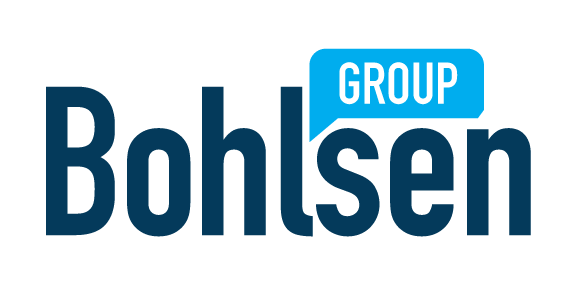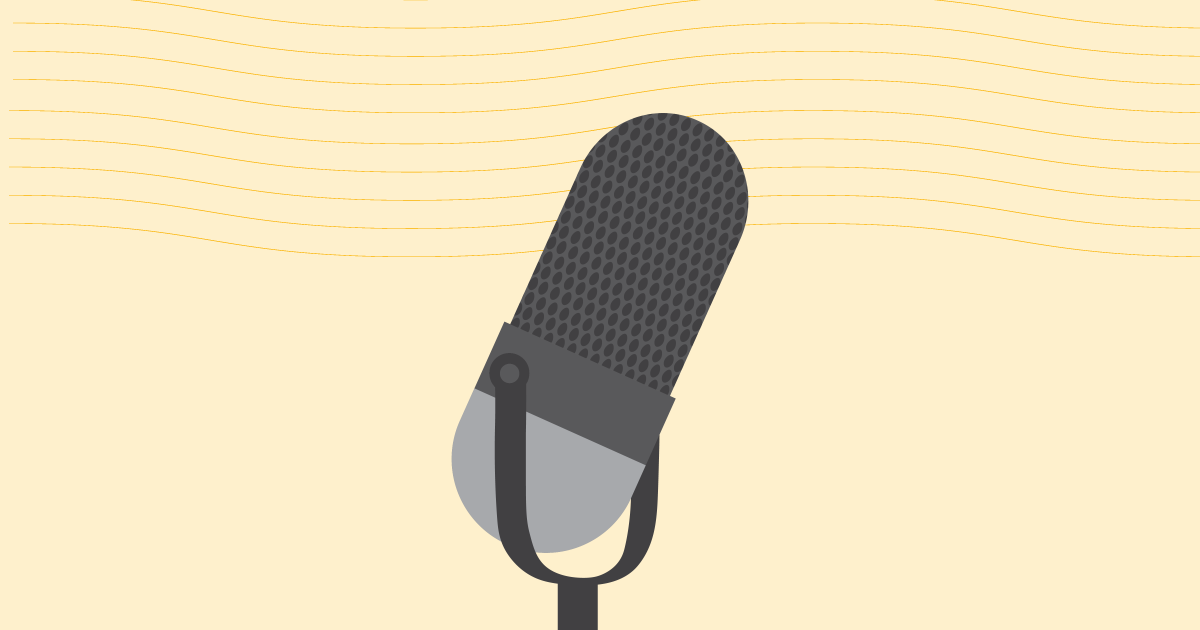What to Know if You’re Considering Starting a Podcast…From Someone Who Knows!
By Vicki Bohlsen
President & Host of “Taking Care in Business”
Every year we see more and more content creators and brands leveraging podcasting for business. Some even say podcasting is the new blogging. The amount of podcasts that exist are about 0.1% of the total amount of blogs that exist and this makes podcasting a very attractive initiative for many who want to be found in a crowded digital space.
But, as a podcast host and marketing professional, I want to go on the record to say that podcasting is not a simple marketing tool to execute. In fact, there are some key things to consider before you pull the trigger and decide to create one of the approximate 2.5 million podcasts currently available on Apple podcasts, because only about 1 in 5 are “active”. Certainly, this inactivity is due to how difficult it is to maintain the production and marketing of a podcast, causing many hosts to just call it quits.
There are many things to consider if you’re trying to decide if podcasting is for you or your organization:
Before the podcast even launches
PURPOSE
A podcast needs a purpose, a reason for existing. Ask yourself “Why” – Why is podcasting an option that you are exploring? How can a podcast further your mission, enhance your organization’s purpose or engage with potential customers?
HOST
A podcast needs a host with both a passion for the topic and for the audience that will be tuning in. Additionally, the host needs to have the credibility and/or credentials to lead and moderate the conversation on the topic. Last, your host needs to be engaging and likeable.
AUDIENCE
There needs to be an audience for your podcast, even if it is a very targeted and smaller niche one. If there isn’t an audience for your content, there is no point in moving forward. You need to know who would listen and why, so that impactful content can be created and, thus, you can get engagement from listeners.
BRANDING
You will need to create a brand for your podcast – a name, logo, brand guidelines, accompanying graphics, messaging, professional headshots of host(s), a variety of collateral materials, social media platforms and a website. Images and messaging about your podcast will need to explain what can be expected when listening and should stand apart from the competitive landscape of podcasts in your same genre.
Podcast Production
PRE-PRODUCTION
You will need to have a format for your podcast and there are many things to consider: music, intros, outros and length. Will your host speak free form, have guests to conduct interviews, answer listeners’ questions or have a combination of elements?
PRODUCTION
Many things fall into production– where will the host tape the podcast and what equipment will they use? Who will edit the podcast? How long should the episodes be? How often will you drop episodes?If inviting guests, how will you recruit and invite; what background and standards meet your requirements for a guest? Will you write scripts for your episodes? Do you know what format your files need to be saved out in?
DISTRIBUTION
There are many software platforms available to help with distribution and I highly suggest you find one to help with this process of uploading your episodes to all the places people are finding listening opportunities. Consider ways you can make your audience and potential listeners aware that a new episode has dropped– social media, email marketing, website. Create processes for everything!
Getting your podcast out there
MARKETING
It doesn’t matter if you have a podcast if no one knows it exists. A comprehensive marketing plan must be implemented in order to launch your podcast as well as grow your audience. In my opinion, every podcast should have a social media presence, a website and an email list, along with a plan for each. In addition to these basic elements, what else will you do to market your podcast? For instance, do you have a budget to put towards a paid digital campaign? Will you create a toolkit for guests to cross-promote?
SPONSORS/ADVERTISERS
Not every podcast has advertisers or sponsors; in fact, it will be nearly impossible unless you have a national or very targeted presence with already-existing partners, grow your listenership to at least 10,000 listeners or have a combination of both. If your goal is for your podcast to be a revenue generation tool, then there’s an entirely different list of things to consider before you start a podcast because you are going to need to spend a lot more time and money to break even or potentially even make a profit from your podcast.
PARTNERSHIPS
No matter the genre of your podcast you will have stakeholders. If your listenership is not large enough to engage with a professional organization to handle your income stream, then I suggest you reach out to your stakeholders to create shared value partnerships that can be explored with your podcast. You might be able to offset the costs associated with producing your podcast and also grow your audience with these types of relationships.
BUDGET
You will spend money to create a podcast and you should be prepared to do so. Time is money, and a lot of time will be spent on everything from branding and marketing to production and distribution. You should be aware of the costs associated before you begin and consider options to offset the costs associated with using podcasting as a marketing tool for yourself or organization.
My parting words
Speaking from Experience
As I mentioned, I’m speaking from experience. The podcast I host is a Bohlsen Group production called “Taking Care in Business”. Each week, I interview a guest from an organization that is using business as a force for good; our audience is very niche. I have the benefit of having three marketing professionals from Bohlsen Group help with the daily tasks associated with production and marketing.
We have processes for everything – from inviting guests and editing, to distribution and marketing tasks. I would estimate that each person spends a few hours per week on “Taking Care in Business”. Our annual budget is reduced because we do so much in-house, but keep in mind that it takes four of us a few hours per week to drop a 30-minute episode every other week. That’s at least 500 hours per year and that doesn’t account for the pre-launch work that needed to be done or any hard expenses.
We do not have advertisers or sponsors, but we have had shared value partnerships in the past. I started the podcast out of pure passion after getting B Corp Certified. I thought that it would help me to continually improve Bohlsen Group by learning from others and I wanted other organizations to see the value in conducting business responsibly. Over time, I have expanded my mindset to understand that the podcast is a lead generation tool as well.
I hope that sharing the behind-the-scenes details about “Taking Care in Business” has helped you decide if a podcast is the marketing tool – or business – for you. Research shows that podcasting is expected to grow at the compounded rate of approximately 25% every year, both in number of podcasts and listeners. This shows the need for great content, but is this the right investment for you or your organization?

